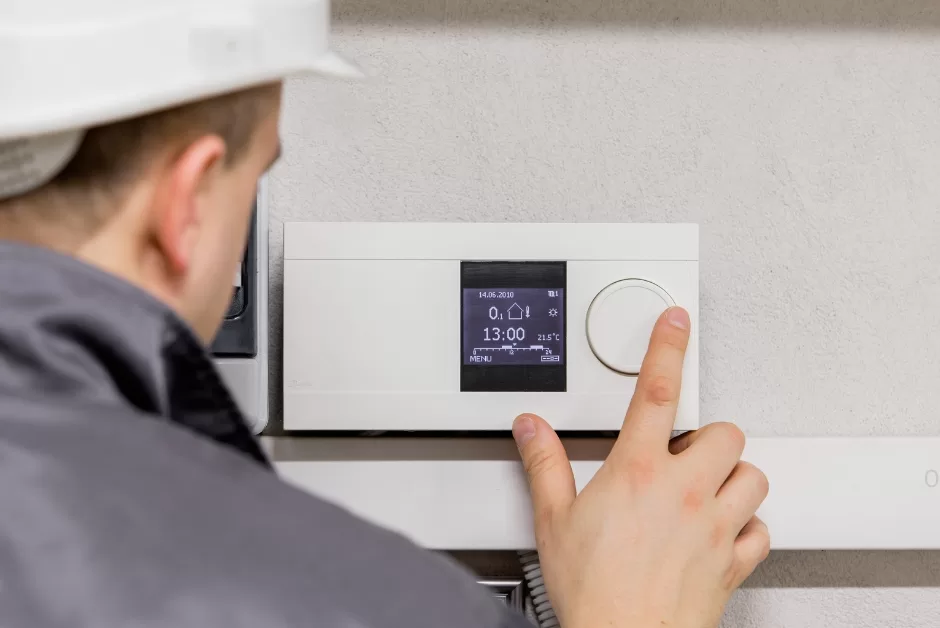Understanding efficient heating options
Heating your home efficiently is crucial for keeping your energy bills low and staying comfortable in all seasons. When choosing heating options for your new home, consider the following factors to ensure you make the best decision:
- Energy Efficiency: Look for heating systems that have a high energy efficiency rating to save on your utility costs in the long run.
- Fuel Types: Understand the different types of fuels available for heating, such as natural gas, electricity, or oil, and choose the one that is most cost-effective and convenient for your area.
- Maintenance Requirements: Consider the maintenance needs of each heating option to make sure you can keep it running efficiently over time.
- Initial Cost vs. Long-Term Savings: Compare the initial cost of installing a heating system with the potential long-term savings on your energy bills.
By considering these factors, you can choose the most efficient heating option that suits your new home and budget.
Factors to consider when choosing a heating system
When choosing a heating system for your new home, consider the size of your space, the climate in your area, and the energy efficiency of the system. Think about whether you prefer a system that heats the entire house at once or one that allows for room-by-room temperature control. Additionally, assess the initial cost of installation, ongoing maintenance expenses, and the system’s long-term energy consumption. Research different types of heating systems, such as furnaces, boilers, heat pumps, and radiant heating, to determine which option best suits your needs and budget.
Pros and cons of different heating options
When selecting a heating system for your new home, it’s essential to weigh the advantages and disadvantages of each option. Here’s a breakdown of the most common heating options to help you make an informed decision:
- Furnaces:
- Pros: Efficient at heating large spaces quickly; works well in cold climates.
- Cons: Can be noisy; may lead to drier indoor air.
- Heat Pumps:
- Pros: Energy-efficient; can both heat and cool your home.
- Cons: Initial installation cost may be high; effectiveness decreases in extremely cold temperatures.
- Radiant Floor Heating:
- Pros: Provides consistent heat; can be cost-effective in the long run.
- Cons: Installation can be complex and expensive; may not be suitable for all flooring types.
Consider these factors alongside your budget and the specific heating needs of your home before making a decision.
Energy efficiency ratings and cost considerations
Energy efficiency ratings are essential when choosing heating options. Look for a high Energy Star rating to ensure your system is cost-effective and eco-friendly. Consider the initial cost, but also factor in long-term savings on energy bills. Heat pumps and solar heating systems are known for their efficiency and can reduce your energy expenses over time. Make an informed choice by balancing upfront costs and future savings.
Popular heating systems for new homes
Electric heat pumps and gas furnaces are two popular heating systems for new homes.
Electric heat pumps:
- Efficient: They work by transferring heat rather than burning fuel, making them energy-efficient.
- Cost-effective: They can also provide cooling in the summer months, making them a versatile choice.
- Environmentally friendly: They produce fewer greenhouse gas emissions compared to gas furnaces.
Gas furnaces:
- Quick and powerful: They provide fast and powerful heat, ideal for colder climates.
- Reliable: Gas furnaces are known for their reliability and ability to heat a home quickly.
- Widely available: Natural gas is readily available in many areas, making gas furnaces a convenient choice.
Ducted heating vs. split systems
Ducted heating systems distribute heat throughout the whole house using a network of ducts in the ceiling or under the floor. They provide consistent warmth but can be costly to install. Split systems, on the other hand, are more affordable to set up and allow you to control the temperature in individual rooms. It is crucial to consider your home size, budget, and desired level of control when deciding between ducted heating and split systems.
Radiant floor heating and its benefits
Radiant floor heating is a heating system installed beneath your floor. It provides warmth by radiating heat from the floor upwards. This type of heating system is known for its energy efficiency and even heat distribution. Here are some benefits of radiant floor heating:
- Efficient: Radiant floor heating can be more energy-efficient compared to traditional heating systems because it warms objects directly, reducing heat loss.
- Comfortable: It creates a cozy environment by heating your living space from the bottom up, resulting in consistent warmth throughout the room.
- Space-saving: Since there are no visible radiators or air vents, radiant floor heating frees up space and gives you more design possibilities for your home.
Consider these advantages when evaluating heating options for your new home.
Smart thermostats and heating control
Smart thermostats can help you control your home’s temperature from your smartphone. They can learn your routine and adjust the temperature accordingly, potentially saving you money on energy bills. Some models even work with voice assistants like Alexa or Google Assistant. Installing a smart thermostat is a simple way to make your heating system more efficient and convenient.
Installation and maintenance tips
When installing a new heating system in your home, it is vital to consider the efficiency of the system. Proper installation is key to ensuring it operates at its best. Regular maintenance of your heating system is essential to keep it running smoothly and efficiently. Here are some tips to help you with the installation and maintenance process:
- Choose a heating system that is appropriate for the size of your home.
- Make sure to hire a professional installer to ensure the system is installed correctly.
- Follow the manufacturer’s instructions for maintenance tasks such as filter changes and inspections.
- Schedule regular maintenance checks to prevent any potential issues and keep your system running efficiently.
Choosing the best heating option for your new home
Consider the size of your home when choosing a heating system. A central heating system can efficiently warm up larger spaces, while ductless mini-split systems work well for smaller homes. Radiant floor heating provides luxurious warmth but is more costly to install. Heat pumps are eco-friendly and energy-efficient, ideal for moderate climates. Assess your needs and preferences to select the heating option that suits your new home best.




